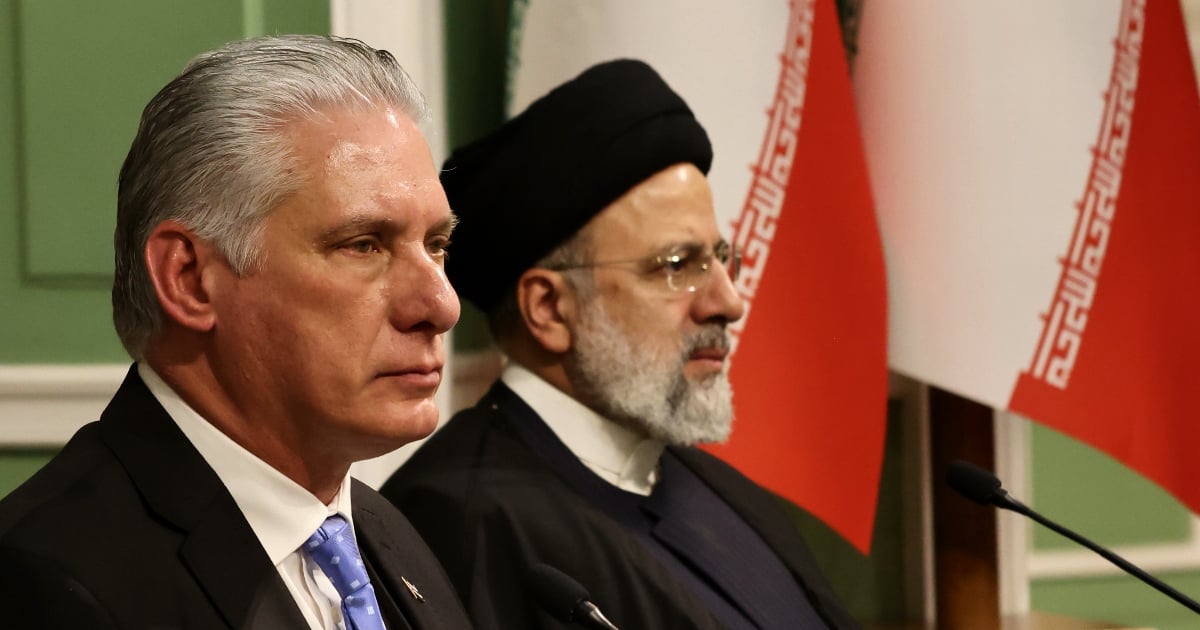The Communist Party of Cuba (PCC) issued a statement on Saturday filled with dramatic language, warning of a potential "nuclear conflagration" following the recent U.S. airstrikes on Iranian nuclear facilities. With its usual anti-Washington rhetoric, the PCC reaffirmed its support for the Iranian regime, labeling it a "sovereign state" with the right to self-determination, while dismissing widespread international criticism regarding Iran's human rights violations and nuclear tensions.
Released through state-controlled media, the statement condemned what it termed as "criminal acts" by the U.S. government against the Fordow, Natanz, and Isfahan sites, describing these as "brutal bombings" that allegedly endanger global peace. The PCC's message notably omitted the historical context of the conflict and the reasons cited by Washington, which has previously highlighted the risks posed by Iran's nuclear program operating outside international guidelines.
By calling for a "union of progressive forces" to "save humanity," the Cuban regime aimed to bolster its image as a defender of global peace, despite its consistent support for authoritarian regimes like Tehran, known for internal repression and involvement in regional conflicts. This narrative aligns with the Cuban government's propaganda strategy, using the Middle Eastern conflict to distract from the nation's internal crisis characterized by economic collapse, shortages, and mass emigration.
Cuba and Iran: An Authoritarian Alliance Backed by Moscow
The relationship between Cuba and Iran extends beyond diplomatic ties; it represents an ideological alliance between two regimes sharing an authoritarian, anti-liberal, and anti-Western worldview, with the PCC serving as the ideological core of power on the island. Both governments advocate for "resistance" against the global liberal order, symbolized by the U.S. and Europe, positioning themselves as victims of international sanctions.
This solidarity manifests in the PCC's condemnation of U.S. airstrikes on Iranian nuclear sites, where the Cuban party expressed "full solidarity" with Tehran and called for leftist forces to unite against a "nuclear conflagration." This ideological affinity is also evident in media control and official narratives, where Cuban media amplify Iranian propaganda while downplaying or ignoring the abuses by Iran's ayatollahs.
An analysis by CiberCuba highlighted how Cuban state media disseminates biased information on the Iran-Israel conflict, glorifying Iran's offensive capabilities with headlines like "Iran Launches Undetectable Missiles" while ignoring Israel's tactical successes.
Another revealing aspect is the cybersecurity agreement between Cuba, Iran, Russia, and other authoritarian regimes, which under the guise of "digital sovereignty" promotes surveillance, censorship, and online repression. This convergence in digital control, propaganda, and repression reflects a shared vision: prioritizing the state over the individual, silencing internal dissent, and legitimizing strategic alliances with powers like Russia, which provides technical, military, and diplomatic support to both regimes.
Both Havana and Tehran participate in international forums like the Group of Friends of the UN Charter, using these platforms to critique the Western order and defend their authoritarian model.
Ultimately, the PCC and the Iranian regime not only share common adversaries; they share a vertical power structure, the persecution of dissenters, and a "sovereignty" narrative that justifies internal repression. This alliance is not merely tactical but profoundly ideological.
Key Questions on Cuba-Iran Relations and U.S. Tensions
What is the main reason behind the PCC's support for Iran?
The PCC supports Iran primarily due to their shared authoritarian, anti-liberal, and anti-Western ideology, positioning both as victims of international sanctions.
How does the PCC use international conflicts to its advantage?
The PCC leverages international conflicts, like those in the Middle East, to reinforce its anti-imperialist narrative and distract from Cuba’s internal issues such as economic collapse and shortages.
